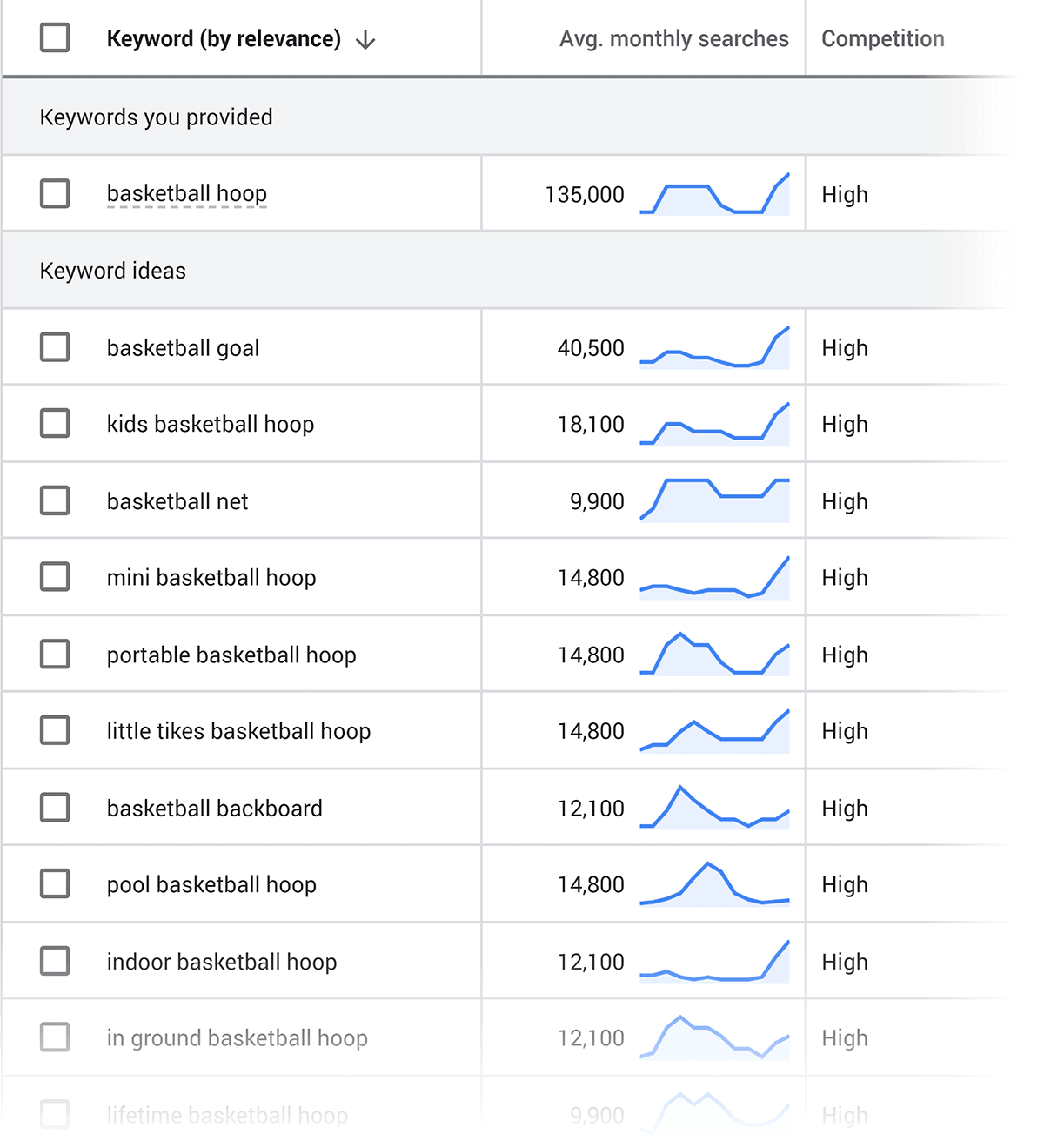The Art of Finding High-Converting Keywords for Your Website

The Impact of Effective Customer Relationship Management on Your Business’s Growth and Success
May 24, 2023
What Recruiters Look for in a Content Writer’s Portfolio
September 27, 2023
What is Keyword Research and Why is it Important?
Keyword research is the process of discovering and analyzing words and phrases that people use to search for information online. It involves researching and identifying keywords that are relevant to your business, as well as assessing their search volume, competition, and potential to drive traffic to your website.
Keyword research is important because it can help you create content that resonates with your target audience, improves your search engine rankings, and drives more traffic to your website. By understanding what keywords your customers are searching for, you can optimize your content to be more relevant and increase the chances of it appearing at the top of search results.
Effective keyword research also allows you to gain insight into your customers’ needs and preferences, enabling you to tailor your marketing efforts to their interests and pain points. This can ultimately lead to higher engagement rates, better customer satisfaction, and increased sales for your business.
In today’s digital age, where consumers are constantly bombarded with information and choices, effective keyword research can give you the edge you need to stand out and succeed. It helps you reach the right audience with the right message, making it an essential tool for any business looking to improve their online presence
Keyword research is the foundation of any successful online marketing strategy. By understanding the language your target audience uses to search for your products or services, you can optimize your website content, create targeted ad campaigns, and rank higher in search engine results pages.
Here are some of the key benefits of conducting keyword research for your business:
- Improved Organic Traffic: Optimizing your website for the right keywords can help you attract more organic traffic from search engines. When you rank higher for relevant keywords, you are more likely to get clicks and visitors to your site.
- Increased Conversions: Keyword research can help you understand the intent behind user searches. This insight allows you to create content that addresses their pain points and offers solutions. By creating relevant content that speaks to your audience, you can increase conversions and generate more revenue.
- Cost-Effective Advertising: Using targeted keywords in your online advertising campaigns can improve ad relevance, lower CPC, and increase ad performance. You can also identify and eliminate poorly performing keywords, reducing your advertising spend and boosting ROI.
- Competitive Advantage: Keyword research can help you identify gaps in your industry’s keyword landscape. By focusing on untapped keywords and optimizing your website for long-tail phrases, you can gain a competitive advantage and attract more targeted traffic.
In summary, keyword research is an essential aspect of any online marketing strategy. By understanding your audience’s language and intent, you can create content that resonates with them, drive more targeted traffic to your site, and ultimately increase your conversions and revenue.
Actionable Tips for Conducting Effective Keyword Research in 2023
Keyword research is one of the most important aspects of SEO and digital marketing. Without proper research, you risk targeting the wrong keywords and attracting the wrong audience to your website. In this section, we will provide actionable tips for conducting effective keyword research in 2023.
- Understand Your Target Audience
The first step to conducting effective keyword research is understanding your target audience. Who are they, and what are they searching for online? What are their pain points, and how can you address them with your content? By answering these questions, you can identify the keywords that are most relevant to your audience and target them effectively. - Use a Keyword Research Tool
There are many keyword research tools available today, from Google Keyword Planner to SEMrush and Ahrefs. These tools provide insights into the search volume, competition, and ranking difficulty of keywords, allowing you to identify the most relevant and valuable keywords for your website. Be sure to choose a reliable tool that fits your budget and needs. - Look at Competitor Keywords
One effective way to find valuable keywords is to look at your competitors’ websites and see which keywords they are ranking for. This will give you an idea of what keywords to target, as well as what topics and keywords your audience is searching for. - Consider Long-Tail Keywords
Long-tail keywords are longer phrases that are more specific and targeted than generic keywords. They have lower search volume but higher conversion rates because they are more targeted to a specific audience. Use long-tail keywords to optimize your content for specific search queries and attract highly targeted traffic to your website. - Optimize for Voice Search
As more and more people use voice assistants like Alexa and Google Assistant to search for information online, optimizing your content for voice search has become crucial. Use natural language and long-tail keywords to optimize your content for voice search queries and provide answers to users’ questions.
Using Keywords on Your Website for Maximum Impact
Once you’ve conducted your keyword research, the next step is to implement your findings on your website. Here are some actionable tips to ensure that you’re using keywords on your website for maximum impact.
- Use keywords in your content: One of the most important places to use keywords on your website is in your content. Ensure that you’re using your target keywords throughout your pages, including in headings, subheadings, and the body of your content. But don’t overdo it – stuffing your content with too many keywords can actually harm your rankings.
- Optimize your meta tags: Another key area to optimize with your target keywords is your meta tags. This includes your title tags and meta descriptions. Make sure that your target keywords are included in these tags, and that they accurately describe the content of your page.
- Use keyword-rich anchor text: When linking internally within your website, use keyword-rich anchor text. This not only helps users understand where the link is going, but it also helps search engines understand what the linked-to page is about.
- Don’t forget about images: You can also optimize your images with keywords. Use descriptive, keyword-rich file names and alt tags to give your images an extra SEO boost.
- Keep an eye on keyword density: While you want to use your target keywords throughout your website, make sure that you’re not overusing them. Aim for a keyword density of around 1-2%, or even less.
By following these tips, you can ensure that you’re using your target keywords effectively throughout your website, and giving yourself the best chance of ranking well in search engines. But remember, keyword optimization is just one aspect of a successful SEO strategy – you’ll need to incorporate other tactics such as link building, content creation, and technical SEO to see the best results.
Avoid Keyword Stuffing: While it’s important to use keywords strategically in your content, avoid keyword stuffing. Keyword stuffing not only makes your content read unnaturally but can also lead to search engine penalties. Focus on creating high-quality, valuable content that incorporates keywords naturally and provides a great user experience.
Tracking Your Keyword Performance: Metrics to Watch
Once you’ve implemented your keyword research into your website, it’s important to monitor your keyword performance. This will help you determine if your efforts are paying off and whether any adjustments need to be made.
Here are some key metrics to keep an eye on:
- Rankings: The first and most obvious metric to watch is your website’s search engine rankings. Are you ranking on the first page of Google for your targeted keywords? If not, it may be time to reevaluate your strategy and make some changes.
- lick-Through Rates (CTR): Your CTR is the percentage of people who click through to your website after seeing it in search engine results. It’s important to track this metric as it gives you an idea of how well your meta titles and descriptions are resonating with your audience.
- Organic Traffic: This metric shows you how many people are coming to your website via organic search results. By tracking your organic traffic, you can get an idea of how well your keyword research and SEO efforts are performing.
- Conversions: Ultimately, the most important metric to track is conversions. Are people taking the desired action on your website, such as filling out a form or making a purchase? If not, it may be time to reassess your website’s user experience and make some changes.
By regularly monitoring these metrics, you’ll be able to identify areas for improvement and make data-driven decisions about your keyword research and SEO strategy. Remember, SEO is an ongoing process and requires continual attention and optimization to see long-term success.
As someone who has seen the immense value of keyword research firsthand, I can confidently say that it’s a vital component of any successful website strategy. Understanding your audience, knowing what they’re searching for, and aligning your content with those needs is crucial to attracting high-converting traffic to your site.
In 2023 and beyond, the importance of keyword research will only continue to grow. As search engines become more sophisticated and competition for attention online intensifies, businesses that invest in the art of keyword research will have a significant advantage.
By following the actionable tips we’ve discussed and using keywords effectively on your site, you can ensure that you’re reaching your ideal audience and positioning your business for long-term success.


